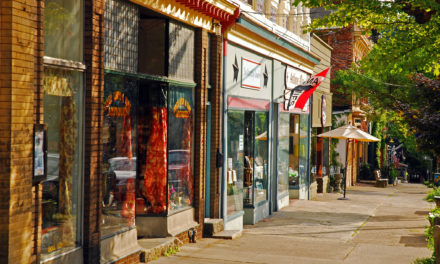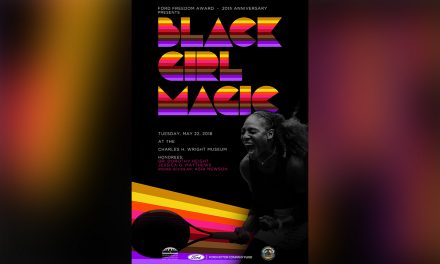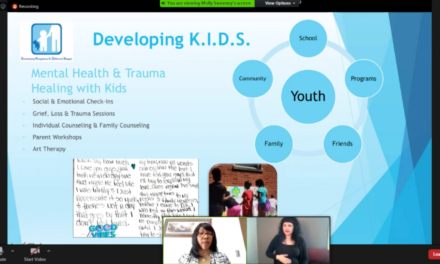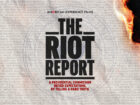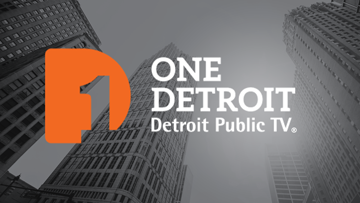What is it like to be a journalist of color covering the black lives matter protests and other stories about racial injustice? Are you expected to separate personal experiences from professional reporting?
Orlando Bailey asks these questions and more to journalists Katrease Stafford of The Associated Press and Olivia Lewis from Bridge Detroit.
This segment is a part of American Black Journal and BridgeDetroit’s collaboration presenting a series of reports on issues threatening the lives of people of color and the groups advocating to protect them.
Read full transcript
Orlando Bailey So what is it like to be a journalist of color covering the Black Lives Matter protest and other stories about racial injustice? Are you expected to separate personal experience from professional reporting? I posed these questions and more to journalists, Katrease Stafford of the Associated Press and Olivia Lewis from Bridge Detroit.
Orlando Bailey The murder of George Lloyd has reverberated in cities all over the nation, including Detroit. How do you feel about the coverage of perhaps the largest modern civil rights movement is being covered by media organizations in the city and around the United States? Kat we’ll start with you.
Katrease Stafford I kind of compare it to every time a crisis hits America. You know, if you look at our coverage of Hurricane Katrina, you look at the coverage around Trayvon Martin as so many other deaths that have come before. Whenever you talk about the media writ large and coverage, there are always obvious gaps and holes in coverage. And I believe that’s a reflection because of the newsrooms not having the right people in there to add the proper nuance, to add the proper coverage that is needed, to really explain to readers what’s happening. And so when you ask me, how do I feel about the coverage of George Foy, I feel the same way that I felt in previous years where I feel that there’s a lot of great coverage. There is a lot of nuanced coverage that I am seeing. But I feel that we can always do more and do better.
Orlando Bailey Yeah. Olivia, you’re covering protests and, you know, watching following this story closely here in the city of Detroit. How do you feel about the media’s coverage of this, you know, civil rights movement, this Black Lives Matter movement and the protests that have ensued in cities across the nation, including our city?
Olivia Lewis Right. So, you know, when I think of all of the protests that are happening not just here in Detroit but everywhere, you know, the Black Lives Matter movement started in 2013. So we’re back to that time. There were reports going out in 2013 that we’re asking if Black Lives Matter was a terrorist organization, which is crazy. And so now and there are still reports that are going out with that question. And it’s like when we think about the words that we’re writing or the words that we’re saying on podcasts or TV or whatever radio like, those words have meaning. And so it affects the way that the community sees the protest, how it’s happening, the people who are involved. And so when we’re asking questions like, oh, well, has there been any looting or has there been you know, how many people have been arrested? You know, those questions matter. And so we have to think about our reporting in terms of how is this affecting the community? You know, what is the community doing to either be involved or what are their feelings about the protest? And so I think that there’s been a lot of reporting in terms of like there’s been a lot of change in the way that protests have been covered, but it’s still being covered like from the forefront in terms of like a crime story, which I think is very troubling. Yeah. I’m glad to see that there have been some changes, like there’s I think it was on NPR. There was like a stance about like how headline should say a black man was shot and killed and murdered instead of an unarmed black man. Just the difference that that makes in terms of the reader and understanding the issue locally, like that, like those little things make such a huge difference. And so I think Bridgie Detroit has done a really great job in terms of looking at what the community is doing, how the community is acting and reporting those stories.
Orlando Bailey And, you know, I guess cementing how important it is to have news reporters that are reflective of, you know, the makeup of the cities that they are covering. To add that layer of nuance that non reporters of color, jurnalist of color, will miss because they just have a different experience, right, Kat?
Katrease Stafford Absolutely, and just thinking about the city of Detroit, using that as an example, if you are from the city. You know the neighborhoods. You know the power players. You know who the grandma is on the street. You know the right people to interview. You know, the right questions to ask. You have that perspective that’s really ingrained in you to know what’s going on in the neighborhood. You’re not just what I call parachuting in to get a story and then leaving. You’re invested in the community. And in my opinion, that is something that every newsroom should hope for, not even just local news. You know, now I’m on a national level and it’s like, how do you bring that perspective into national coverage and it’s by still amplifying those voices, still finding the right context and the right people to talk to. So even thinking about who am I interviewing in these stories? And if you are not using the right voices in your stories, that’s a problem. That’s why we’re going to continue to have this coverage that feels like it’s just scratching at the surface and that getting at the underlying issues. That makes so much sense.
Orlando Bailey Let’s talk about facts vs. the narrative that we hear from the president and other spaces of power. Right. Does that narrative line up with what you know is happening on the ground?
Katrease Stafford I think a lot about how President Trump lately has really kind of stuck to this law and order narrative that he wants to restore law and order in communities across the country. What we know well that’s doing is that’s signaling he’s trying to signal to a certain base. He’s trying to signal to these this this narrative, the white suburban mom, who, you know, if he believes that they don’t want to see crime come into their neighborhoods. And that’s how, as Olivia said, that’s how he is painting the picture of the movement for Black Lives. But what we know is on the other side, they’re saying that’s we’re not out here trying to destroy neighborhoods. We are literally fighting for our lives. So I think as reporters, it’s on us to provide that. Once again, nuance is my favorite word lately. To share facts and the facts are that there are people protesting in the streets because they are tired of seeing black men die at the hands of police. They are tired of seeing police brutality. They are tired of seeing people of color die disproportionately from Covid19, right. It’s not even just about police protests, so how do you cover that?
Orlando Bailey Yeah. Olivia, we’ve been paying close attention to the narrative that is being cascading here in the city of Detroit from the mayor and the chief of police, as well as the president doesn’t line up with what you know is happening on the ground and in the streets of the city of Detroit.
Olivia Lewis Not at all. Just not at all. It’s actually really frustrating, especially because I can go back to Bryce Hoffman’s piece on Operation Legend, because the entire when news broke that the FBI was going to send federal agents here to Detroit. It was really confusing to people on the ground to say, wait, I thought these protests were predominately peaceful. I thought that people were really coming together. And now it’s like, wait, now we’re sending in federal agents. What does this have to do with the protests? And so I think it caused a lot of confusion around what was actually happening here and really tried. I feel like it was the federal government’s way of trying to take over the narrative and say, well, this is what we’re going to do and how we’re going to react. And even though it ended up not being about the protests, it was very confusing and an unsettling time when it didn’t have to be.
Orlando Bailey I want to I want to ask you both about what you know, the layers that exists in being black women and journalists covering Black Lives Matter. What’s going on with you, Olivia? Internally, as a black person, as a black woman, as a journalist who is expected to put words to an experience that people are feeling and going through, but that you’re also going through at the same time?
Olivia Lewis Yeah. You know, honestly, I feel very fortunate because I worked for Bridge Detroit, so like back to your earlier statement about being in a newsroom that also represents the community that we’re covering.
Olivia Lewis I think that is so tremendously helpful just for my own sanity and my own piece that I know that I can rely on my team and that if I have questions like you guys are going to be there for me or if I am doubting myself or the things that I’m doing, I can always go back to my team. And I didn’t always feel like that in other newsrooms. And so I feel like that’s a huge part of it. But also like I feel very invested in the stories that we’re telling that, you know, I really want to tell stories that. Reflect the community, you are answering the community’s questions like it’s not just about saying, OK, there was a protest today. This many people got arrested, where as people didn’t get arrested. You know, it’s more it’s more than that. It’s like Kat said, when you think about the neighborhoods, you know, who were the people involved, what’s going on in the neighborhood and how is how is the protest impacting them or how are they getting involved in the protests? Like all of that matters.
Katrease Stafford And so I feel very invested in the stories that we’re telling. These past several months have forced me to rethink journalism and how I approach my own reporting, because I’ve just been kind of in my head trying to explain what is being objective mean. You know, when you’re in journalism school, they all they talk about is the notion of objectivity. But what I’ve really thought about over the past several months is the fact that I am a black woman first and I am also a journalist. And I believe that my experiences in America, my experiences in Detroit, inform my reporting it’s not a hindrance. And the goal for me as a journalist is to work in a newsroom that allows me to bring my full self into my work. So again, help inform that reporting. So as I’ve been watching everything unfold. I feel that as a journalist, I have to get it right. And I think about that every day because the things that we write, the things that we thought, it impacts people. It shapes the thought process of people in Detroit and beyond. So I think it’s an honor to tell our stories. And I take it so seriously because I know that journalism really does have an impact on people’s lives.

